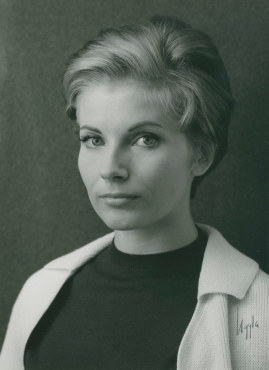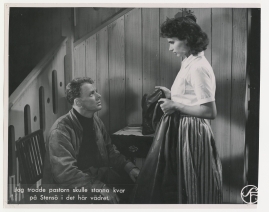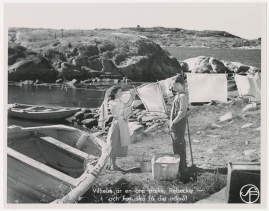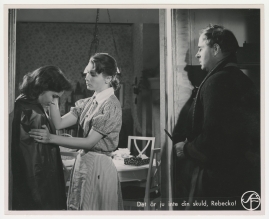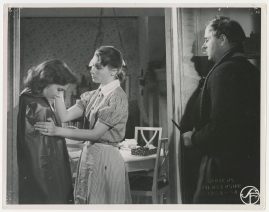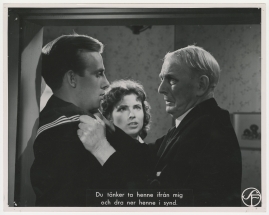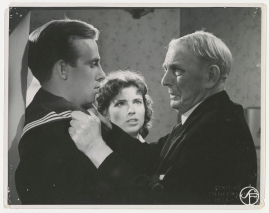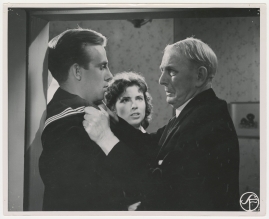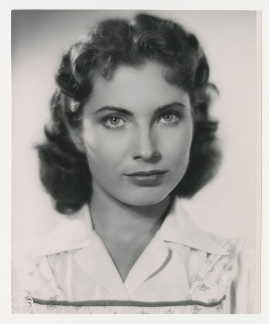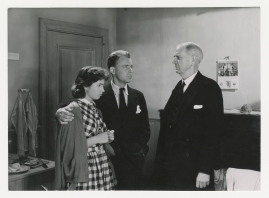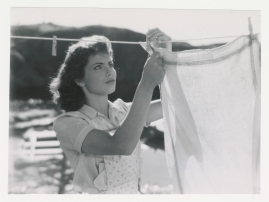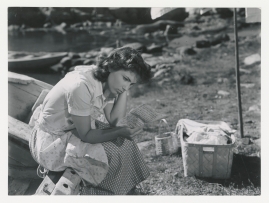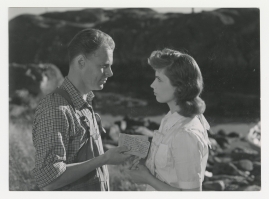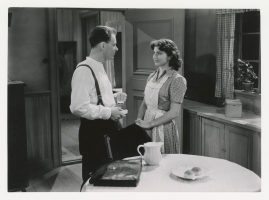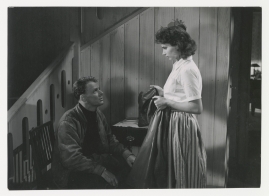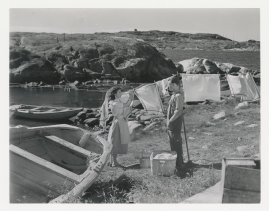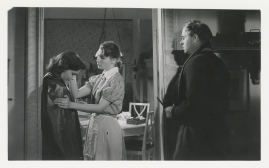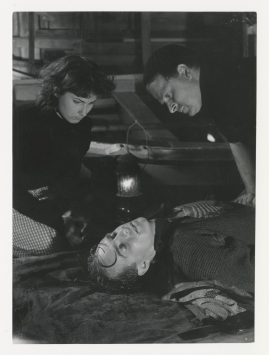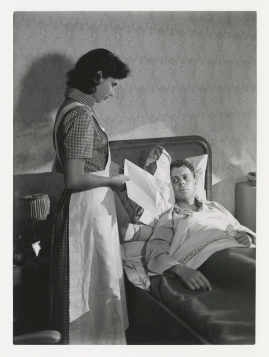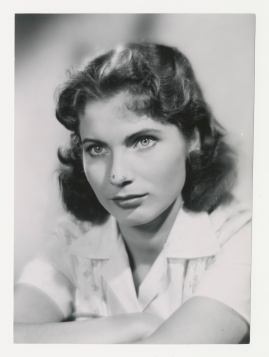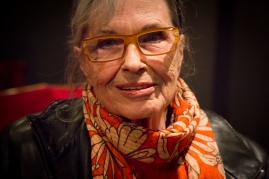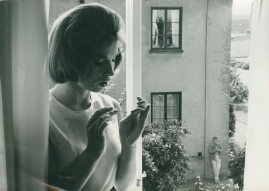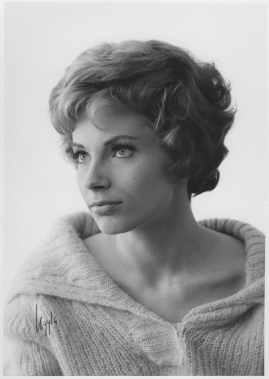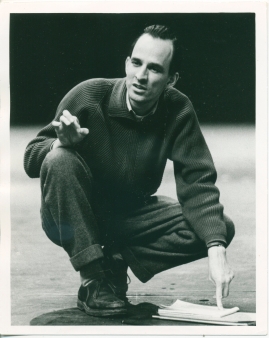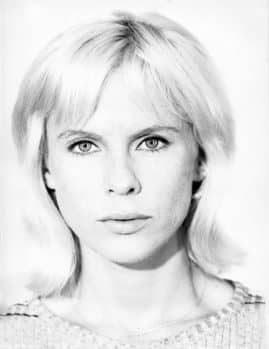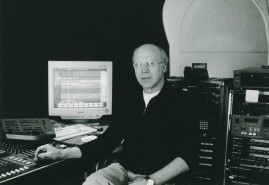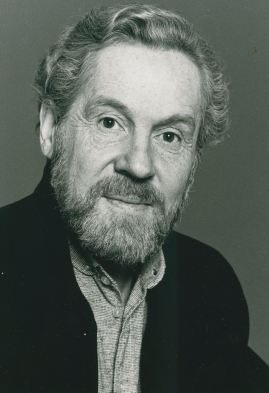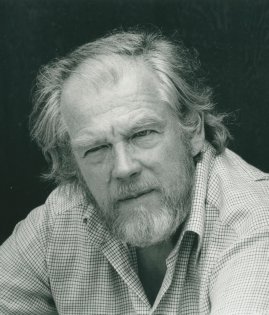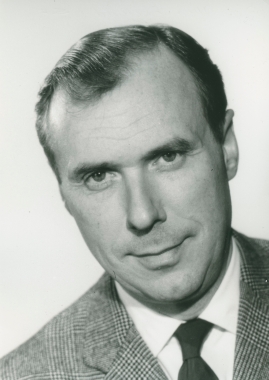Gunnel Lindblom
Table of contents
- Basic facts
- Links and resources
- Biography
- Awards
- Films
- Original work
- Soundtrack listing
- Groups
Basic facts
Media (23)
| Alternative names |
|
|---|---|
| Cast |
|
| Director |
|
| Show all films | |
| Awards |
|
Biography
Swedish actor and director. Born as Gunnel Märtha Ingegärd Lindblom in Göteborg.-In the 1950s and 1960s Gunnel Lindblom was one of Sweden's leading actors, achieving international status through her appearances in some of Ingmar Bergman's most significant films. In addition to acting, Lindblom has also enjoyed considerable success as a film and theatre director.With an interest in the theatre from an early age she gained in 1950 a place at the Göteborg City Theatre stage school. Two years later she made her film debut in Kärlek ('Love', Gustaf...
Links and resources
Biography
Swedish actor and director. Born as Gunnel Märtha Ingegärd Lindblom in Göteborg.
-
In the 1950s and 1960s Gunnel Lindblom was one of Sweden's leading actors, achieving international status through her appearances in some of Ingmar Bergman's most significant films. In addition to acting, Lindblom has also enjoyed considerable success as a film and theatre director.
With an interest in the theatre from an early age she gained in 1950 a place at the Göteborg City Theatre stage school. Two years later she made her film debut in Kärlek ('Love', Gustaf Molander, 1952) and in 1953 she joined the company of the Göteborg City Theatre. The following year she moved to the Malmö City Theatre where Ingmar Bergman was the artistic director. Lindblom's breakthrough came courtesy of roles in his stage versions of "Peer Gynt" and "Faust". She was acclaimed both for the intensity and sensitivity of her acting which, coupled with her imposing stage presence, contributed to her major breakthrough in film. During the late 1950s and early 60s Lindblom's films included three of Ingmar Bergman's most celebrated films - The Seventh Seal (Det sjunde inseglet, 1957), The Virgin Spring (Jungfrukällan, 1960) and The Silence (Tystnaden, 1963). Although the characters she played tended not to speak any lines, she managed to play the parts with considerable expression. Her successes also led to a lucrative contract with 20th Century Fox.
However, Lindblom did not enjoy working abroad, and returned to Sweden a couple of years later to join Stockholm's Royal Dramatic Theatre. She wanted to take a more active part in the creative process, or as she put it in a newspaper interview: "Sometimes I'm stricken with panic that people won't get to discover the reserves I have". She started working as a director's assistant for Bergman and others, making her own directing debut on the national stage with Gustav Fröding's play "Sjung vackert om kärlek" ('Sing Beautifully About Love').
Four years later Lindblom made her debut as a film director with Summer Paradise (Paradistorg), a film version of Ulla Isaksson's novel of the same name. Isaksson and Lindblom co-wrote the screenplay, which centres on an impressive summerhouse in the Stockholm archipelago. Every summer the various generations of the Wik family gather at the house, where the matriarchal doctor Katha - played by Birgitta Valberg, who won a Guldbagge award for the role - is the undisputed hub of the family. However, exasperations and disdain are bubbling under the surface of this Swedish idyll, and Bergmanesque elements are clearly discernible in the dialogues that resolve these issues. In one central scene a bitter quarrel breaks out around the dangers facing children in welfare Sweden as a result of women's liberation and the desire for self-realisation.
The difficult balancing act between the desire to have a career and enjoy a full family life at the same time, and the tendency of feelings of freedom to lead to a feeling of rootlessness, pervade her second film, Sally and Freedom (Sally och friheten, 1981). Even though this film, with its screenplay by Margareta Garpe, is more than 30 years old its themes are just as relevant now as they were then. What characterises Lindblom as a filmmaker is the fact that she wants to take up important current issues that she feels strongly about without preaching to her audience about what is right or wrong. Instead, she provides a complex picture of difficult and life-changing decisions in a thought-provoking way.
Much to her frustration, although her first two films were well received by the critics and contributed to social debate about issues such as gender roles, it was hard for her to find producers for her screenplays. As a consequence she only made one more feature film for the cinema, Summer Nights on the Planet Earth (Sommarkvällar på jorden, 1986), which was also well received. Lindblom continued to work as a director both for the theatre and television, where her films include the feature-length Sanna kvinnor ('True Women', 1991). After a number of years away from the industry she returned as an actor both on stage and screen, and as recently as 2009 she could be seen in the popular The Girl with the Dragon Tattoo (Män som hatar kvinnor, directed by Niels Arden Oplev). In 2002 Gunnel Lindblom was awarded an honorary Guldbagge award for her contributions to film.
Martin Ohlsson (2013)
(translated by Derek Jones)
Awards
| The Guldbagge Award | Gothenburg | 2002 | Lifetime Achievement Award | ||
|---|---|---|---|---|---|
| Prize | Stockholm | 1989 | (O'Neill-priset; 20.000 kr) |
